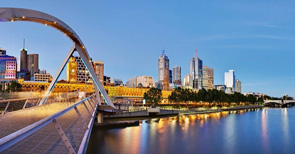-

Rescue mission in Venice
The Hotel Savoia & Jolanda in the heart of Venice is suffering badly from rising damp, flooding that occurs with depressing regularity, and thus the penetration of often contaminated salt water. Extensive repairs, refurbishment and waterproofing had therefore become imperative.
Rescue mission in Venice
Venice - Italy
The Hotel Savoia & Jolanda in the heart of Venice is going the same way as many buildings in the lagoon city: Its fabric is over three hundred years old with walls standing on foundations originating from the 12th century. It is suffering badly from rising damp, flooding that occurs with depressing regularity, and thus the penetration of often contaminated salt water. Extensive repairs, refurbishment and waterproofing had therefore become imperative.
Unusual project conditions
While innumerable visitors to Venice admire its unique cityscape, the 60,000 inhabitants of its historic centre are being increasingly confronted with problems associated with the maintenance of their homes and infrastructure. While the omnipresence of water alone makes this a difficult and costly undertaking, major renovation work also has to comply with the city’s strict heritage conservation regulations. Given that significant work on the foundations of the Hotel Savoia & Jolanda was as much a “no no” as changes of any kind to its outer walls, classic structural waterproofing techniques were ruled out right from the start. Then there was the client’s own particular requirement that the work should be performed with the hotel still operating and that guest nuisance was to be kept to an absolute minimum.
All in all, this thus constituted quite a challenge for MC’s injection technology, despite that fact that its waterproofing prowess had already been thoroughly proven in numerous residential and commercial buildings, in tunnels and dams, on bridges and in myriad other structures both major and minor. Ultimately, after Roberto Padoan and architect Renzo Ferrara from the construction company Sixth Element had been able to persuade the hotel management of the benefits of MC’s systems, the contract was signed and collaboration began in earnest.

© MC-Bauchemie 2016
Challenge accepted
January 2016 saw the first training course held by MC’s application engineers for the selected applicators, construction firm F N Servizi E Costruzioni. The waterproofing work in the hotel was carried out in the months of March, May and June on a staged basis in order not to disrupt its day-to-day running. The sealant curtain for the ground floor was injected by the applicator firm using the hydrostructural resin MC-Injekt GL 95-TX and a borehole grid based on 50 cm intervals. This MC resin produces a durable, flexible membrane, is environmentally compatible and is highly suited to applications involving wide area contact with both ground and potable water.
As the next stage, the joints between the floor and the walls were sealed with MC-Injekt 2300 top to form a horizontal moisture barrier. With the masonry being so old and porous, the injection material here needed to exhibit a longer reaction time and stronger penetration activity. Due to the conditions encountered, the borehole grid in this case was very tight. A second horizontal barrier was placed to extend 40 centimetres above the first as additional protection against flooding. Thus, the complete masonry plinth was sealed. The horizontal barriers had a total length of 120 metres.
Proven flood resistance
Since that time the lagoon city has suffered a number of floods, the worst of which occurred at the beginning of October 2016 when the water rose 90 centimetres. Nevertheless, the floor and walls of the hotel were able to withstand the torrents, so keeping the inside dry.
Regional media such as TV broadcaster Antenna 3 regularly reported on the project while ongoing, with one headline reading: “La resina che salva Venezia” – or “The resin that’s saving Venice.” Fine recognition for a job well done.
-
Name
Rescue mission in Venice
-
Country
Venice - Italy, 2016
-
Categories
-
Products
-
News
Click here to go to our News section.
-
MC-Pedia
In our MC-Pedia you will find technical articles on various topics written exclusively by our specialists.
-
Magazine
Get our latest issues of our customer and employee magazine MC aktiv.
-
Downloads
Find all relevant datasheets of our products as well as brochures of our company, Fields of Expertise and product categories here.
-
References
Click here to get to our library with reference projects for all types of application.
-
Careers
Click here to go to MC Career.
-
Contact
Click here to go to our Contact section.
